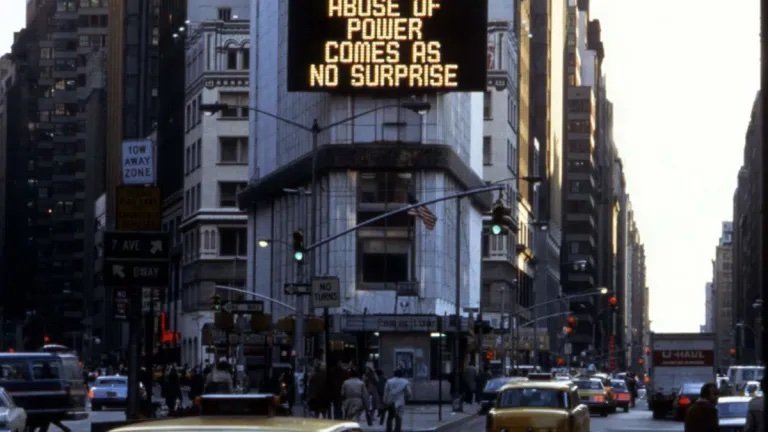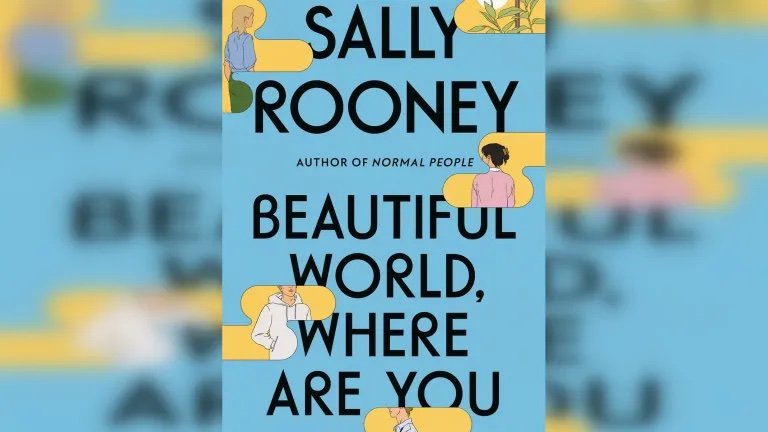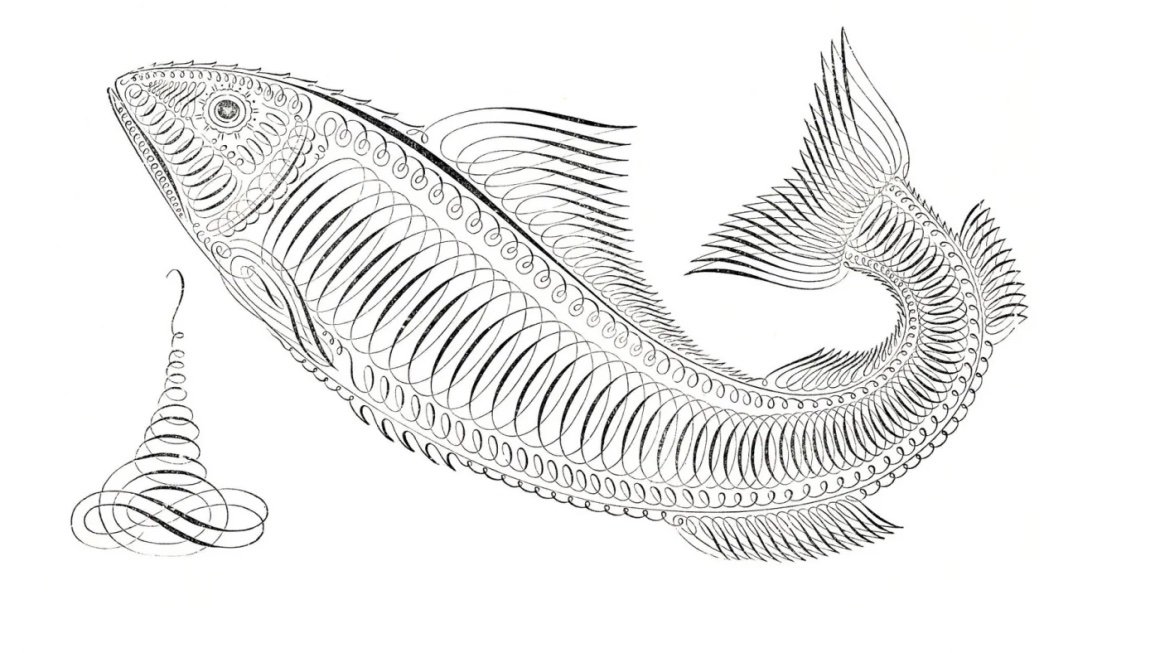On Striking, Solidarity, and Jumpsuits
I wear a lot of jumpsuits. They’re warm, chic, easy—a complete outfit when you’re too depressed to think too hard about what to wear. For those saying it’s an adult onesie, you’re right and you should say it. My best friend — an Indigenous trans poet, social work student, lifelong activist and the most fashion-forward person I know — has had several discussions with me about how a blue-collar worker’s garb was appropriated as street fashion. On my end, the fit is bold, well-cut, and practical. It’s only ever a problem when you have to use the bathroom.
A Conversation with Ann Patchett
In Ann Patchett’s most recent essay collection, These Previous Days, her attention to memory invites readers to explore what it means to be seen as “our best and most complete selves.” The collection hosts practical advice on clearing out clutter (“How to Practice”), meditations on the publishing process (“To the Doghouse”), and intimate musings on marriage (“Flight Plan”). Throughout, Patchett calls for an embrace of life’s unpredictability and brings forth the brilliance that can be found in such imperfection. Writer Yvonne Conza spoke with the author recently about time, losing a friend, and putting life in order.
Writing and Riding: An Interview with Adin Dobkin
In 1919, right after World War I, Tour de France cyclists united a country that had been torn apart by unprecedented desolation and tragedy. Sprinting Through No Man’s Land by Adin Dobkin explores how they did it. Told through the eyes of L’Auto editor Henri Desgrange as well as some of the cyclists that participated in the 1919 Tour de France, the book—written in chapters interspersed with photographs—guides us through the race as it describes the war-torn landscape and the people who live in it. A razor-sharp focus on the cycling narrative as dug out from archival research by Dobkin accompanied by a deft, descriptive painting of the aftermath of the Great War lends a rich, full tone to the retelling. Here, Dobkin and Shah sit down at the Hungarian Pastry Shop with some tea, coffee, and almond blondies to talk about nonfiction craft, the process of writing the book, and larger discussions surrounding sports today.
Review: Beautiful World, Where Are You
Sally Rooney is back and for sale. Her third novel, Beautiful World, Where are You, came out yesterday at the peak of a marketing campaign that seems to be more focused on distributing swag and “experiences” than getting books into hands. For an author who once said “I am very skeptical of the way in which books are marketed as commodities…almost like accessories which people can fill their homes with,” it is hard not to wonder if Rooney is living through her own personal apocalypse as bright yellow Beautiful World bucket hats are sent out to celebrities for photo ops.
A Conversation with Chessy Normile
Madeleine Cravens, M.F.A. candidate in poetry, sat down with poet Chessy Normile on a stoop in Brooklyn to talk about humor, vulnerability, and revision. Normile’s debut collection, Great Exodus, Great Wall, Great Party, was awarded the 2020 APR/Honickman First Book Prize, judged by Li-Young Lee. This book’s poems are irreverent and highly intimate, drawing the reader in through topics such as the Bible, theories of time, and trauma. As Li-Young Lee writes in the introduction, Normile’s poems are “born of an imagination that is unpredictable, fearless, probing, self-questioning, and marked by the influence of a hidden wisdom some might consider folly.”
frank: sonnets by Diane Seuss
I first opened Diane Seuss’s new collection, frank: sonnets, in Maria Hernandez Park in the Bushwick neighborhood of Brooklyn on one of the first sunny days of Spring.
The Poet as a Revolutionary Force – A Review of Cedar Sigo’s Guard the Mysteries
Guard the Mysteries (Wave Books, 2021) is a collection of five talks given by poet Cedar Sigo for the Bagley Wright Lecture Series in 2019. His scope is broad, considering everything from poetry’s potential as a revolutionary force to concepts of identity, personal and shared histories, and the life and work of poets who have been influential in his practice. But “lectures” would be too reductive of a word for what Sigo has accomplished. Each talk works in dialogue with the others, oscillating fluidly between different themes and ideas, rhythmically building towards a satisfying culmination. The lectures, presented over several months, achieve an orchestral resonance when read consecutively. Sigo touches the heart of what it means to not only be a poet, but to be living. That is not to say these talks lose themselves in abstract, ethereal concepts—they are teeming with interesting anecdotes about key figures in America’s literary and activist history, and are firmly grounded in the real world. Writers and readers alike will find this work enriching and informative.
Review: Of Women and Salt by Gabriela Garcia
From the cigar factories of 19th century Cuba to sleazy Miami nightclubs and a family detention center in Texas, Gabriela Garcia’s debut novel, Of Women and Salt, follows the lives of women fighting to survive in countries and relationships hellbent on destroying them.
Getting In The Game: An Interview With Jordan E. Franklin
Jordan E. Franklin is a Brooklyn based poet with two projects coming out in 2021 – When the Signals Come Home, a full-length collection from Switchback Books which won the Gatewood Prize, and a chapbook entitled boys in the electric age which will appear with Tolsun Books. In this interview, she talks with Columbia poetry MFA candidate Catherine Fisher about music, family and being a native Brooklynite.
Lifting the Bird’s Feather: A Love Letter to Interpreting
Tiffany Troy, Assistant Translation Editor for Columbia Journal, spoke with poet, educator, and interpreter Judith Small to discuss the magic of language learning, the musicality of traversing languages, the ethics of interpretation and the deeply human prayer in Second Tongue (Brighthorse Books, 2019).
Feeding the Poetic Demon with Douglas Kearney
If crossing Dionysian boundaries is true poetry, then no one makes the poetry demon swoon like Douglas Kearney does. Kearney is a star-studded poet, performer, and librettist. Accolades include a Whiting Award and fellowships from Cave Canem and the Rauschenberg Foundation. Kearney has published six collections, including Buck Studies (Fence Books, 2016), Someone Took They Tongues (Subito, 2016), and Mess and Mess and (Noemi Press 2015). His latest poetry collection, Sho (Wave Books, April 2021), provides a kaleidoscope of splintered selves and voices. In Sho, the speakers of Kearney’s poems are at once the antagonistic tricksters who enchant you (“I aspire to be a CVS: Lord”) and at once the documenters of historical and current wrongs (“Black wench! Clipped finches’/ shrill in brass lattice.”)
Review: Milk Fed by Melissa Broder
“She thought of people she had seen holding hands in movies, and why shouldn’t she and Carol?” This question, from Patricia Highsmith’s 1952 lesbian romance The Price of Salt, is related from the perspective of Therese, a shopgirl and aspiring set designer who has fallen in love with the wealthy, mysterious Carol. Nearly seven decades and a social revolution later, a similar question is posed in Melissa Broder’s Milk Fed, as the novel’s narrator, Rachel, sits in a Los Angeles movie theater with her love interest, Miriam. “What about holding hands in a movie theater? Can girls hold hands in a movie theater?” Rachel asks, probing, in bad faith, the strictures of Miriam’s Orthodox Jewish religion. After an agonizingly long pause, Miriam says yes, and what follows is a sequence of actions so libidinally charged that it leaves Rachel physically sick with desire.
Review: Love and Other Poems by Alex Dimitrov
So much of art, if not all of it, is about love. Every movie with their lovestruck leads. Each song’s lyrical strings stemming from the heart. It is a subject as predictable as it is inevitable, especially in poetry, an artform delineated by roses that are red and comparisons to summer days. Any attempt to avoid love, be it through loneliness, politics, or an appeal to the metaphysical, finds its way back inside a speaker, a desire. In this era of rapid innovation, where difference is valued above deference, love will always thwart our attempt to quantify the ineffable— those moments that, when experienced, leave no specific conscious impression, but instead, a sensation, a feeling that lingers with us forever.
Egghead Watch: Living with A Serious Man’s Uncertainty Principle
On November 2, on the eve of the 2020 Presidential Election, a tweet went viral. It was a picture of the electoral map, noting each state’s obtainable votes—though rather than shaded red or blue, they were all colored a light teal, overlaid with a photo of Fred Melamed from the film A Serious Man, flashing his quixotic grin. The caption read: “And the winner is…Sy Ableman???”
ICYMI: Say Translation is Art with Sawako Nakayasu, Susan Bernofsky, and Lynn Xu
How can we look at translation as art? How can a translator develop their own relationship and mode of translation based on their aspirations? What can translation simultaneously encompass and transcend?
Review: Funeral Diva by Pamela Sneed
Pamela Sneed remembers her childhood: “Even my era did not allow me to be little innocent / A threat if I spoke up / A competitor for middle class white girls / who had the world handed to them / And resented me/you for surviving / thriving despite all the odds” (Twizzlers), living against the world who put so much on her back. In the memoir/poetry collection, Funeral Diva, Sneed offers us a glimpse into the 1980s to the world we live in now, traveling through time to a place where Black and Brown LGBTQ+ youth were growing up dealing with the AIDS crisis, police brutality, and struggling to keep communities together in spite of it all. Sneed uses her voice to bring space for the Black community, her eyes paint the image of growing up with terror at your front door and learning to absorb it and move forward.
Review: How to Survive Death and Other Inconveniences by Sue William Silverman
Sue William Silverman opens How to Survive Death and Other Inconveniences with a road trip in her gold-finned Plymouth, “cruising through life” down Route 17 as a teen, “planning to never stop.” Throughout this memoir/thematically linked essay collection, Silverman shows us that, metaphorically, she is still that restless young woman behind the wheel. Poring over an old atlas, Silverman can trace the places and episodes of her difficult past to map the urgency and central drive of the book: what explains the narrator’s life-long fear and obsession with death, and what does it mean to survive?
Review: The Malevolent Volume by Justin Phillip Reed
In his new collection, The Malevolent Volume, 2018 National Book Award, and Lamba Literary Award Winner, Justin Phillip Reed, delves into the underbelly of identity, poetry, religion, myths through the lens of a queer, Black American. A constant theme of The Malevolent Volume is man transforming into a monster, either classically mythic like a Gorgon, or a newly invented creature. In this collection, Reed accepts and moves deftly through anger, cultural truths, contemporary references, and never turns away.
Not Your Typical Gap Year: An Interview With Pam Mandel
Rachel Rueckert, nonfiction MFA candidate, spoke to travel writer Pam Mandel about her career path and recently released book, The Same River Twice: A Memoir of Dirtbag Backpackers, Bomb Shelters, and Bad Travel, a coming-of-age story about an unconventional, emotionally fraught gap year at home and abroad. With no guidance or concrete plan, Mandel embarks on a tangled journey across three continents, from a cold water London flat to rural Pakistan, from the Nile River Delta to the snowy peaks of Ladakh and finally, back home to California, determined to shape a life that is truly hers.
Review: Luster by Raven Leilani
“I was happy to be included in something, even if it was a mostly one-sided conversation with a man twice my age.”

















































